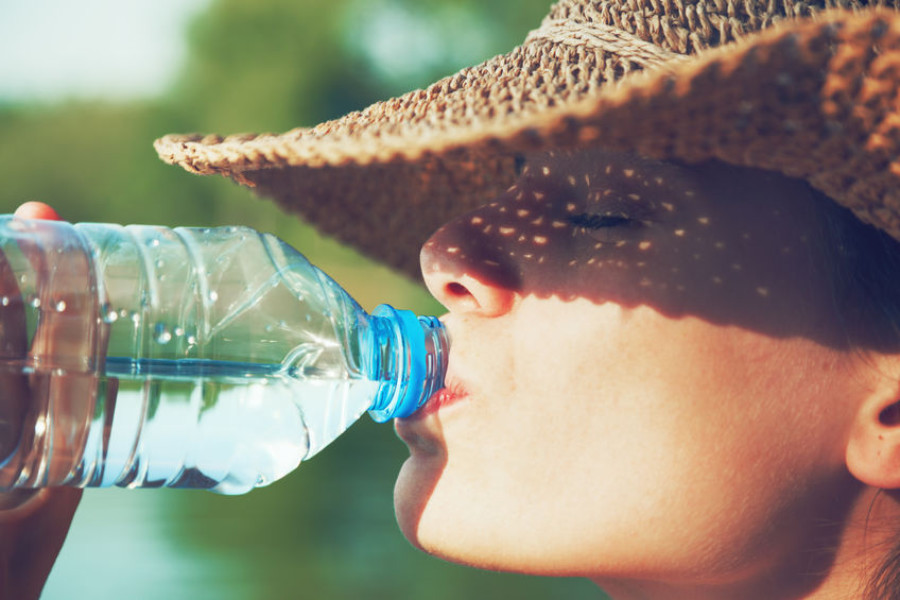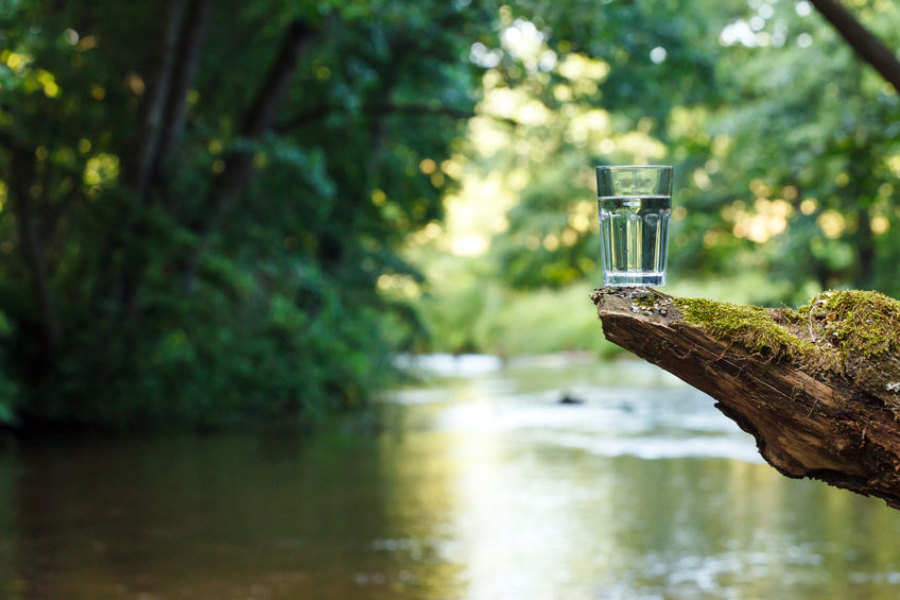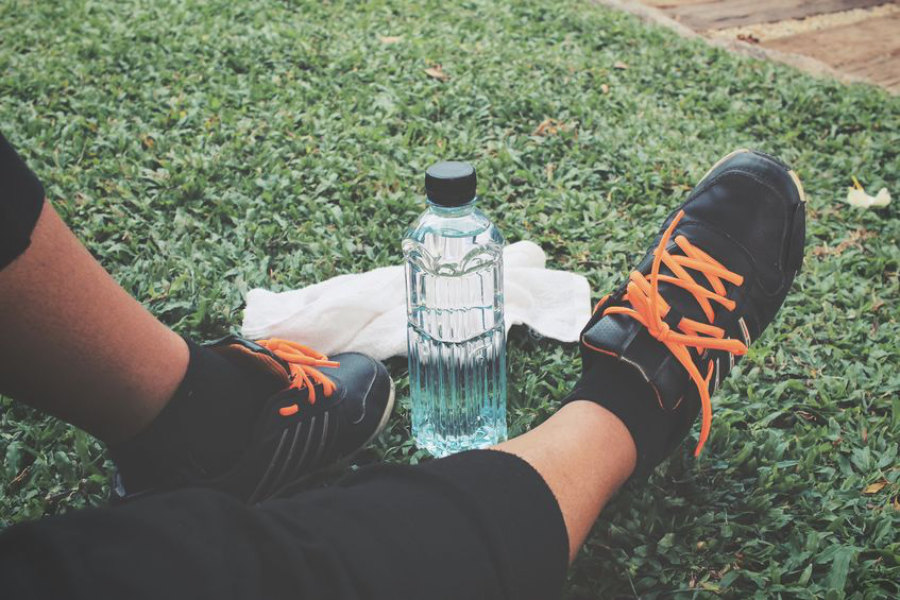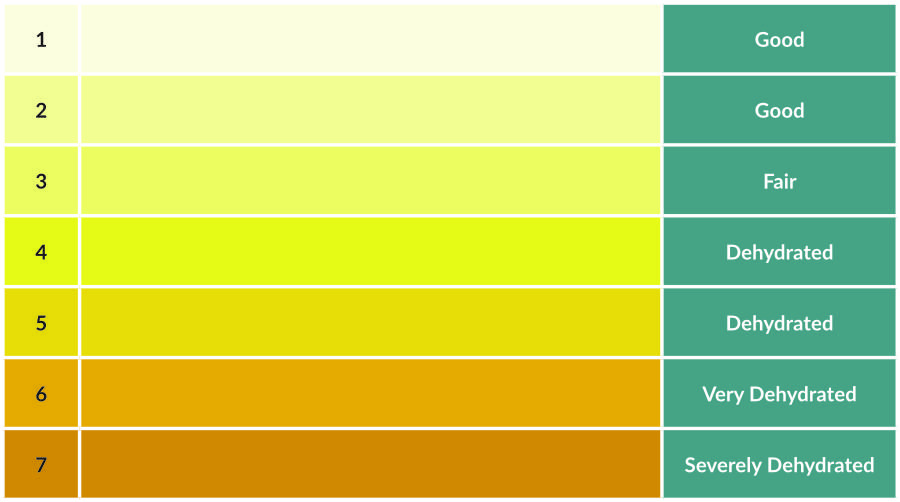There is a striking resemblance between the amount of water on this earth and the amount of water in the human body. With around 60-65% of the human body being water and 75-85% of the brain being made up of water. In this article we are going to look at some of the functions of water, signs and symptoms of dehydration and then try and set some guidelines on how much water might be right for you.
Show me the evidence
Given that we can only last a few days without water, you would think there might be some research looking at the most appropriate levels of water for us humans to drink.
You’ve probably heard of the drink 8 cups (1 cup being 8 ounces/around 250ml) a day recommendation, but the reality is there is very little science behind that recommendation and actually very little science looking at water intake in general.
In fact, the Institute of Medicine following some published reviews of that recommendation found it to largely underestimate fluid needs for most individuals. They stress the importance of individualisation, but then recommended 11-plus 8-ounce cups for women and 15-plus 8-ounce cups for men.
Please note this does not include what we get from food which would be around 20% of this total, so the final number of cups for women would be around 9 and men around 12.5.
Most research on fluid levels/hydration status comes to us with high performance athletes in mind, and usually involves water with appropriate electrolyte, carbohydrate and protein levels for optimising performance in different events under different conditions.
What we can look at when there is little scientific evidence is what is the function of water, what happens when we start to become dehydrated, and what based upon clinical experience is the most appropriate level for most people.
Functions of water
Water plays a number of roles in the body, some of the most crucial include:
- Supporting energy production
- Supporting digestive processes and helping us process substances like alcohol
- Supports the health of our spinal discs and lubricates our joints
- Helps to carry substances around the body
- Helps to deliver oxygen
- Helps to clear waste products
- Needed for hormone production
- Helps to prevent DNA damage
As you can see water is fundamental to our existence.
Symptoms of dehydration
Just slight decreases in hydration can have significant effects on our health, physique and performance goals.
Water has the ability to be distributed to areas of highest importance, thus as we become more dehydrated this can lead to the body trying to preserve water in areas such as the brain and nervous system, but levels dropping in spinal discs and joints, skin, hair, nails, digestive function etc. Could one’s symptoms in those areas simply be the result of poor water intake or fluid balance/distribution?
Some of the tell-tale signs that you are becoming dehydrated are the following:
- Thirst
- Headaches
- Foggy thinking and memory recall issues
- Muscle cramping
- Lowered energy levels
- Slight drops in strength, endurance & power
- Dry skin, brittle hair & weak nails
- Irritability
- Dark-coloured urine
- Constipation (having less than one bowel movement/day)
Research has shown that just small percentage losses can impact physical performance. See the below percentage of water loss and consequences.
- 0.5% Increased strain on the heart
- 1% Reduced aerobic capacity
- 3% Reduced muscular endurance
- 4% Reduced muscle strength, motor skills and cramping
- 5% Heat exhaustion, cramping, fatigue, reduced mental capacity
- 6% Physical exhaustion, heat stroke and coma
- 10-20% Death
What effects your water requirements?
There are many factors that can impact the amount of water you require, so having a fixed number for everyone makes no sense at all.
Surely it makes no sense that an active 90kg athletic male would need the same amount of water as an inactive 50kg female.
Here are some factors that might increase your fluid requirements:
- Activity levels and exercise intensity
- Different climates
- Heat
- Age
- Air-conditioned rooms
- Water content of the food you eat
- Salt content of the food you eat
- Medications
- Certain diseases/conditions
- Sickness and diarrhoea
- Excessive urination – could also be a lack of salts as well as water.
So how much water is right for you?
First of all, it is about finding what your potential baseline is right for you. Three potential methods of finding your water intake levels include:
Bodyweight Method
- Body weight in kg x 0.033
- Thus, an 80kg male would have a water goal around 2.5litres per day.
- Body fat levels will skew this, so this is based upon someone with “norm” body fat levels. Obese individuals may have to lower the recommendation.
Metabolic Rate Method
- Calculate your Basic Metabolic Rate (Metabolic rate at rest). You can use: http://www.bmi-calculator.net/bmr-calculator/
- Once you have your BMR now calculate your daily caloric needs based upon your activity levels. You can use http://www.bmi-calculator.net/bmr-calculator/harris-benedict-equation/
- Once you have that number consume 80-110ml for every 100kcals required
Thus, my intake would be around 3litres per day based upon current weight, activity levels etc. Again, this may have to be adjusted based upon body fat levels which can skew these types of generalised calculations.
Government Guideline Method
Again, this is done using bodyweight, assuming you are not overweight or obese. In this case they use an age cut off and body weight calculation, see below:
- Under 65 years old: weight (in kg) x 35ml
- Over 65 years old: weight (in kg) x 30ml
This would make my water goal around 2.5 litres for the day.
As mentioned previously we get around 20% of our water intake from food, of course this will vary from one diet to another and how much you drink in the first place, but assuming that my personal intake would be around 2litres of water per day, with increases depending on the amount of activity I am doing. That actually works out around 8-10 cups a day from water after food intake and will probably increase to anything from 10-16cups depending on activity levels, climate etc.
What is your water goal after you have subtracted 20% allowing for water intake from food?
Urine Chart
A urine colour chart is also a good measure for hydration status. I have included a picture of this below:
Is water the only fluid to stay hydrated?
Water should be seen as the optimal fluid, however if you’re not big on water, it’s okay! Just make it more interesting – add a few pieces of chopped up fruit and veg to it. You could try anything: strawberries, blueberries, mint, lime, oranges, cucumber, pomegranate – by themselves or as combos, whatever works for you.
Some herbal teas can be included as part of your water intake too: green tea, rooibos and a bit of peppermint perhaps? There are loads to choose from – just avoid those with added sugar (check the ingredients).
Although caffeinated beverages will hydrate you somewhat, they aren’t to be included as part of your goal.
This article was written together with my colleague, Lara Rickard, who is a Registered Dietitian specialising in female hormone health.
Contact Steve Grant Health
To learn more out how Steve Grant Health can assist you on your journey, please fill out the enquiry form below.
Please note that depending on your specific circumstances and goals, Steve may recommend that you work with one of the specialist practitioners within his network of trusted professionals.
If you have been referred by a clinician, please complete the form and ensure that you state who has referred you or have your practitioner email Steve direct to make a referral that way.
Click the button below to open the client enquiry form:
[widgetkit id=”643″]
References
- https://www.webmd.com/a-to-z-guides/features/wonders-of-water#1
- https://www.ncbi.nlm.nih.gov/pubmed/14681719





